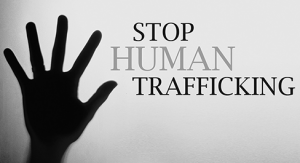Trade in human vital organs callous – Interior Ministry
 Emerging trends in Human trafficking shows that victims are trafficked for the gruesome purpose of removing their vital organs for sale.
Emerging trends in Human trafficking shows that victims are trafficked for the gruesome purpose of removing their vital organs for sale.
Hitherto, victims were mainly trafficked for sex and drug trade, worse forms of labour and other physical or psychological maltreatment, however, in the changing trend of the phenomenon, perpetrators now harvest the victims’ vital organs whilst they are alive, under anaesthesia.
“This shows how callous the perpetrators are and, as a mother, my heart bleeds when such information comes to me as to why any human being would subject another human being to such treatment. It is a crime against the state and the victim,” Madam Adelaide Anno-Kumi, the Chief Director of the Ministry of the Interior, said.
Madam Anno-Kumi disclosed this on Tuesday in Accra at the outdooring of the Human Trafficking National Standard Operating Procedures (SOPs) to combat the practice in Ghana.
The SOPs, that took two years to be developed, seek to provide information, outline responsibilities, clear roles, highlight the services each institution will provide, and give a clear guide of standards in combating human trafficking.
The ministries of Employment and Labour Relations, Gender, Children and Social Protection, and the Interior, as well as the Attorney Generals’ Department, and International Organisation of Migration have signed on to the SOPs.
Madam Anno-Kumi said the phenomenon impinged on human freedom and dignity adding that it was degrading and inhuman for anyone to de-humanise another.
As part of measures to halt the situation, the Ghana Immigration Service had been directed to intensify its border patrols whilst the Police are enhancing their intelligence to get to the kingpins behind the phenomenon both internally and externally.
Madam Sylvia Lopez-Ekra, the Chief of Mission, Ghana, Benin and Togo, said the SOPs were in tandem with the Ghanaian regulations and also guided by international best practices in combating human trafficking.
Highlighting aspects of the SOPs, she said they covered thematic areas of fighting human trafficking namely; Prevention, Protection, Prosecution, and Partnership.
She said the SOP’s, which had five chapters, would create a deeper understanding of the issue of trafficking, victim identification, processes of protecting victims and foster closer collaboration among stakeholders.
“Focus on the implementations of these procedures because if they are not implemented, they become nothing more than paperwork and after a hard work done over a couple of years I don’t think we will not implement them,” Madam Lopez-Ekra said.
Madam Otiko Afisa Djaba, the Minister of Gender, Children and Social Protection, in a speech read on her behalf, said the SOPs would serve as guidelines for stakeholders to better implement the Human Trafficking Act, which was critical to combating the menace.
She said the Government had embarked on various activities in support of the Compact Partnership through a number of activities including the establishment of the Human Trafficking Fund.
Madam Djaba said seminars have also been organised for judges of the High Court throughout the country on issues of human trafficking including adoption for a better hearing, granting of adoption orders and prosecution of suspected traffickers.
Despite these measures, there was the need to enhance national efforts through constant awareness creation and capacity building for stakeholders and the general public for a better understanding of the complex issues, dangers of trafficking and irregular migration, she said.
”Prosecution is still low in the country and the attitudes of people have not changed significantly as expected. Shelters are also limited and there is the need to have them in all the 10 regions and beyond,” Madam Djaba said.
Source: GNA
